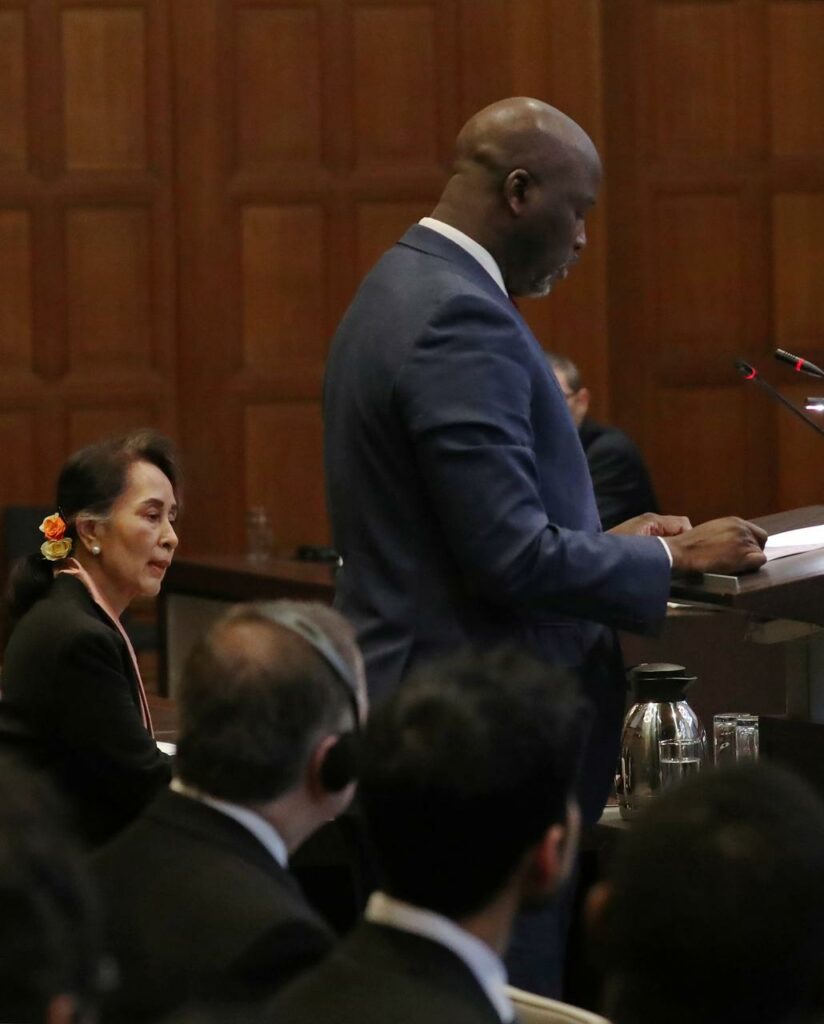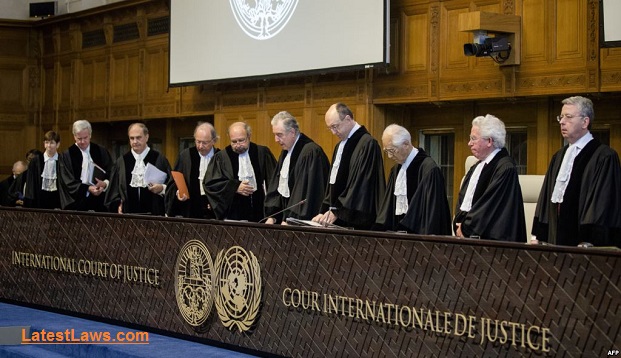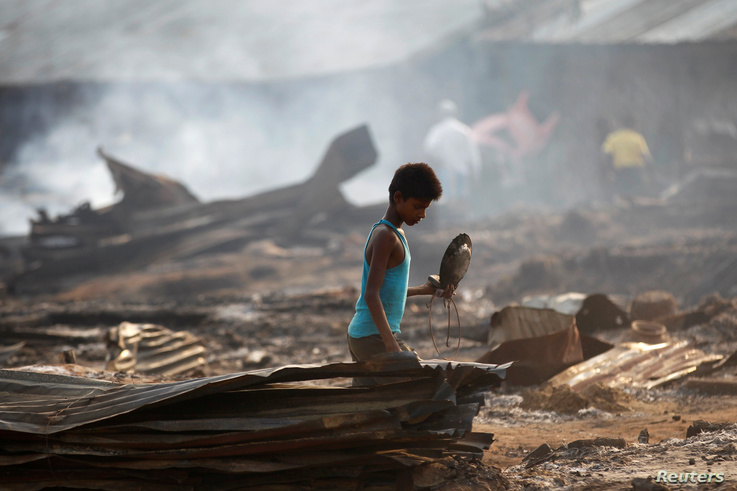
Sometimes the biggest lessons come from the smallest actors. The rest of the world can learn a lot from the recent actions of one of the tiniest countries on the globe – Gambia, with a population of 2 million.
Having emerged from a dark history of dictatorship and state brutality over the past 22 years, Gambia decided not to turn a blind eye to gross violations of human rights elsewhere.
Despite its size and lack of influence on the global stage, Gambia took the unprecedented step of punching far above its weight and bringing charges of genocide against Myanmar at the International Court of Justice, for its attacks on the Rohingya. This is the type of courage – to defend the rights of the vulnerable and voiceless – that would have made Madiba proud.
The case highlights the fact that when countries are considered equal members of the UN system, they have the right to hold larger and more powerful countries to account for genocide and crimes against humanity. The problem is few countries are bold enough to do so, many being unprepared to prioritise human rights and stand up for those who are unable to do so for themselves.
It took a country that has been traumatised from decades of violent oppression to say “enough is enough”.
Under Yayha Jammeh’s dictatorship, state security forces, paramilitary groups and the president’s elite death squad engaged in arbitrary arrests, torture, forced disappearances and executions, with impunity.
It was only in 2016 that Gambia was able to rid itself of Jammeh’s oppressive regime, and current President Adama Barrow ran on a human rights and anti-corruption platform.
Just two years into Gambia’s newfound democracy, in 2018 when it was facing monumental challenges, Barrow told the UN General Assembly that his government would champion an accountability mechanism for crimes against the Rohingya.

Myanmar is a country more than 11000km away, and there is no other interest in Gambia pursuing a case of genocide other than justice for the victims of slaughter and persecution. It is one of those cases that makes us believe there is good in the world.
The tragedy is that the leader who was once celebrated as an icon of democracy and peace, the Nobel laureate Aung San Suu Kyi, led the defence at the ICJ at the end of last year of Myanmar’s atrocities against the Rohingya.
Today, Suu Kyi’s credibility lies in tatters, with many in the international community calling for the revocation of her Nobel prize.
Gambian Minister of Justice Abubacarr Tambadou has driven the case against Myanmar. His commitment to seek justice for the Rohingya emanates from the 13 years he spent working in the Office of the Prosecutor of the International Criminal Tribunal for Rwanda. Tambadou was also part of a delegation attending a conference of the Organisation for Islamic Conference in Bangladesh, when he visited Cox’s Bazaar and heard Rohingya victims’ testimony of what he came to conclude was genocidal acts.
An act of genocide, under Article 2 of the 1948 Convention on the Prevention of Genocide, is the systematic destruction of all or part of a racial, ethnic, religious or national group through killing, causing bodily or mental harm and trauma, deliberately inflicting on the group conditions calculated to bring about the destruction of the group, measures to prevent births, and forcibly transferring children of the group to another group.
Inflicting conditions of life calculated to destroy a group includes the deliberate deprivation of resources needed for survival such as water, food, clothing, shelter and medical services.
The case against Myanmar is only the third invocation of the Genocide Convention before the ICJ, and is the first case to consider acts of non-contiguous, non-warring parties.
According to Gambia’s application, from October 2016, Myanmar’s military and security forces began widespread and systematic “clearance operations” against the Rohingya group. Genocidal acts were intended to destroy the Rohingya as a group through the use of mass murder, rape, sexual violence, destruction of villages by fire (often with people locked in their burning homes). Its application emphasises that as of August 2017, there was a resumption of “clearance operations” on a massive and wider geographical scale.

Gambia’s application is backed by the Independent International Fact Finding Mission on Myanmar which issued its report in 2018. The mission reported that acts committed against the Rohingya threaten their existence as a group, which have included mass killings, rape, beatings destruction of homes and villages and denial of access to food and shelter.
It will take years to finalise the case as final arguments from Gambia are expected in June, and from Myanmar next January. Given the urgency of halting alleged genocidal acts against the Rohingya, Gambia asked the ICJ to rule on “provisional measures”, which serve as a restraining order.
Gambia asked the ICJ to immediately order Myanmar to cease genocidal activities and report within four months on the measures it has taken. Earlier this year, the ICJ issued a unanimous ruling ordering Myanmar to “take all measures within its power” to protect the ethnic minority Rohingya.
Unfortunately, the ICJ’s decision is only as important as the political will of the international community.
UN member states need to condemn the disregard shown on the part of Myanmar for the ICJ’s ruling on provisional measures. Since the ruling was given, military strikes against the Rohingya have continued. The political leadership displayed their arrogance by saying they don’t need to implement procedures to comply with the court’s order as they haven’t committed genocide.
Gambia is calling on the UN Security Council to ensure compliance with the court’s order. As South Africa is sitting as a non-permanent member of the UN Security Council, this is an issue we could raise.
The broader question is whether other states will make better use of the mechanisms available in the UN system to address mass atrocities. There are other countries which are signatories to the Convention on the Prevention of Genocide that are carrying out genocidal acts against particular groups of people, but those cases have not been taken to the ICJ.
Perhaps Gambia’s bravery will encourage other nations to act on their convictions and not turn a blind eye to genocidal acts being carried out in other places across the world?
By Shannon Ebrahim
The author is a South African journalist and Foreign Editor of the Independent Media.










Recent Comments